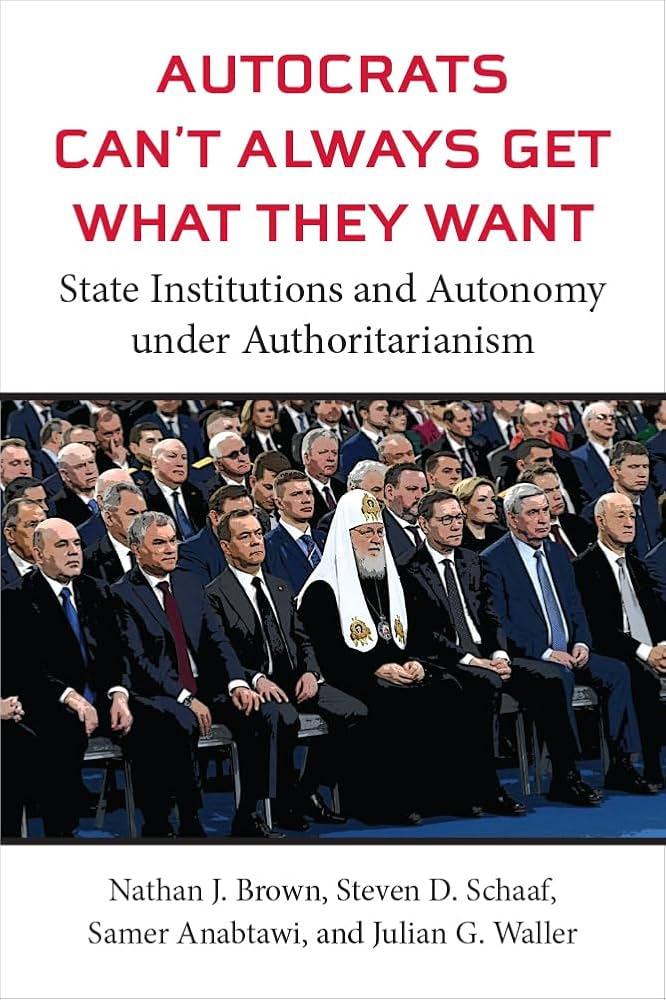The Transformation of Autocracy: A New Era of Control
In the dynamic realm of international politics, the concept of autocracy has experienced a profound evolution. The era dominated by figures like Adolf Hitler and Joseph Stalin, who wielded power through blatant violence and intimidation, is now largely behind us. Today’s authoritarian leaders have embraced more subtle tactics that rely on manipulation, misinformation, and psychological influence to sustain their authority. This change mirrors a larger trend in which autocratic regimes adapt to an increasingly interconnected world shaped by digital communication. By crafting compelling narratives that resonate with their followers, these leaders exploit societal rifts and democratic frameworks to fulfill their objectives—often without resorting to the bloodshed typical of previous generations. This article delves into the strategies employed by modern autocrats and how these methods not only erode democratic principles but also redefine governance itself.
The Shift in Autocratic Strategies: From Violence to Manipulation
In contemporary politics, authoritarian rulers have moved away from overt brutality as a means of control. The reliance on physical oppression has diminished; instead, modern dictators utilize more covert forms of dominance rooted in psychological manipulation. Techniques such as social media propaganda, misinformation campaigns, and subtle coercion are now prevalent tools for these leaders. They no longer depend solely on fear; rather, they cultivate compliance through distorted perceptions that shape public reality.
The mechanisms underpinning this new form of autocracy often include:
- Control Over Media: Authoritarian regimes manipulate state-controlled or influenced media outlets to promote narratives favorable to their rule while undermining opposing voices.
- Surveillance Technologies: Advanced monitoring systems track citizens’ activities, fostering an atmosphere where individuals self-censor due to surveillance fears.
- Distracting the Public: Leaders divert attention towards trivial or divisive topics as a strategy to evade scrutiny over more serious issues.
The evolution in control tactics has prompted varied responses from populations worldwide. Citizens engage in what can be termed as socio-political bargaining, carefully balancing dissent with personal safety. In certain regions, resistance manifests through intellectual creativity—people employ satire and art as shields against oppressive narratives. The table below highlights how various countries exemplify these contemporary manipulation techniques:
| Nation | Tactic Employed | Sociopolitical Impact |
|---|---|---|
| Nicaragua | Economic Manipulation & Media Suppression | Pervasive misinformation leading to widespread disillusionment among citizens. |
| Brazil | Aggressive Targeting of Journalists Opposing Government Policies | Censorship resulting in diminished freedom of expression. |
Decoding Modern Autocrats’ Tools: Disinformation and Social Media Dynamics
The power dynamics within governance have shifted dramatically; today’s autocrats favor sophisticated manipulation over outright violence. Central among their strategies is this tool enables them to distort facts and fabricate alternate realities that align with their agendas. By spreading falsehoods across multiple platforms, they erode trust in traditional media sources while destabilizing public discourse—a tactic aimed at enhancing domestic image while influencing international perspectives so that misdeeds go unchallenged.
The rise of digital platforms has facilitated rapid dissemination among wider audiences often without rigorous source verification.
The significance of social media cannot be overstated—it serves both as a megaphone for propaganda and a battleground for ideas.
Authoritarian figures harness targeted advertising techniques alongside algorithms designed for emotional engagement aimed at swaying public sentiment while suppressing dissenting opinions.
Key approaches include:
- < strong >Formation Of Echo Chambers – Amplifying specific viewpoints while silencing counterarguments.
- < strong >Strategic Information Leaks – Disseminating misleading information intended confuse opponents.
- < strong >Automated Bot Networks – Utilizing fake accounts designed spread disinformation swiftly.
- < strong >Divide And Conquer Strategies – Encouraging divisions within social groups thereby weakening collective opposition.
- < strong >Strategic Information Leaks – Disseminating misleading information intended confuse opponents.
| Manipulative Tool | Purpose | ||
|---|---|---|---|
| < strong data-mce-fragment ="1" style ="color:#000000;">Disinformation | To skew perceptions whilst distorting factual information.< td > tr > | ||
| < strong data-mce-fragment ="1" style ="color:#000000;">Social Media Campaigns | To steer narratives whilst shaping public opinion.< td > tr > | ||
| < strong data-mce-fragment ="1" style ="color:#000000;">Fake Accounts | To amplify divisive content whilst stifling dissent.< td > tr > |
Resisting Subtle Tyranny: Building Resilience Within Democratic Frameworks
The current political landscape reveals how authoritarianism has transitioned from overt oppression towards subtler manipulative practices aimed at undermining democratic institutions under the guise legitimacy .< br/>This insidious form tyranny operates via various channels including : p>
- < strong data-mce-fragment = "1">< /span>  ;Propaganda:< /span>  ;Utilizing mass communication mediums shape prevailing narratives control perception amongst populace .< li />
- < span class = "mso-spacerun" style = "display:none">  ;< /span>  ;Disinformation:< /span>  ;Circulating falsehoods create confusion distrust society .< li />
- & nbsp;< span class = "mso-spacerun" style = "display:none">  ;< /span>  ;Co-optation:< /span>  merging state interests private agendas dilute opposing voices .< li />
Resistance against such manipulative governance necessitates multifaceted approaches rooted community engagement education empowering citizens recognize challenge tactics fostering critical thinking promoting media literacy effective strategies encompass :
- & nbsp;< span class = "mso-spacerun" style = "display:none">  ;< /span>  Grassroots Movements:< mobilizing communities defend democratic values local levels .
li /><
li >& nbsp;< span class = "mso-spacerun" style = "display:none">  ;
  Coalition Building:< unite diverse groups amplify advocacy efforts . li />< li >& nbsp;< span class= mso-spacerun display none;>   Digital Outreach:</><a href=https://example.com/counter-misinformation title=Counter Misinformation></a> utilize online platforms raise awareness combat misinformation . li />Manipulative Tactics Counter Strategies /* Add your content here */ ”
Final Thoughts
h3>”In summary ,the nature authoritarianism has undergone significant transformation since Hitler Stalin’s reign today ‘ s despots rely less overt violence repression opting instead insidious approach :manipulation leveraging propaganda misinformation psychological tactics maintain authority projecting facade legitimacy stability this shift emphasizes importance vigilance democracies recognizing evolving methods subjugation threats persist As citizens policymakers navigate modern challenges understanding nuanced strategies employed contemporary tyrants crucial safeguarding core values institutions democracy









